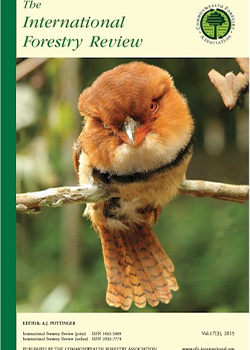
Food-fuel-fibre nexus: towards the framing of sustainable biofuel strategies for climate change mitigation in the Congo Basin
Year of publication: 2019
Author: E. CHIA, K. ENONGENE, K. FOBISSIE, M. LARWANOU
Abstract
Biofuel is increasingly gaining attention as a more environmentally friendly fuel and a substitute for fossil fuel because of its climate change mitigation potential. However, a robust policy and institutional framework is required to guarantee its sustainability. This paper examines the biofuel crop policy domain in Cameroon, the Democratic Republic of Congo and the Republic of Congo. Despite the ongoing large scale expansion of biofuel crop plantations in the Congo Basin, national policy strategies that direct the production and consumption of biofuels are lacking. The expansion of biofuel plantations in the Congo Basin poses a threat at many levels with negative and unintended consequences. Food security, forest cover and biodiversity loss, threatened indigenous and local communities’ customary land rights are examples of likely undesirable outcomes from the emerging biofuel sector. Notwithstanding, there are opportunities to make biofuel respond to both climate change mitigation and social and economic development objectives in the region.
